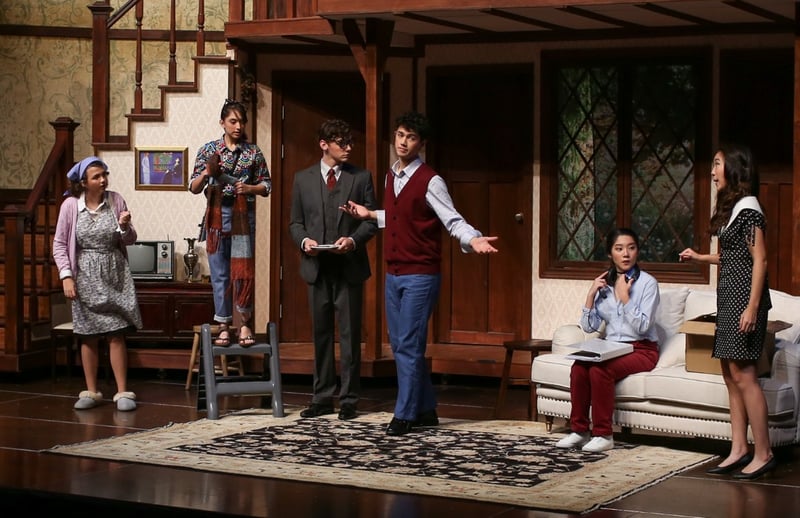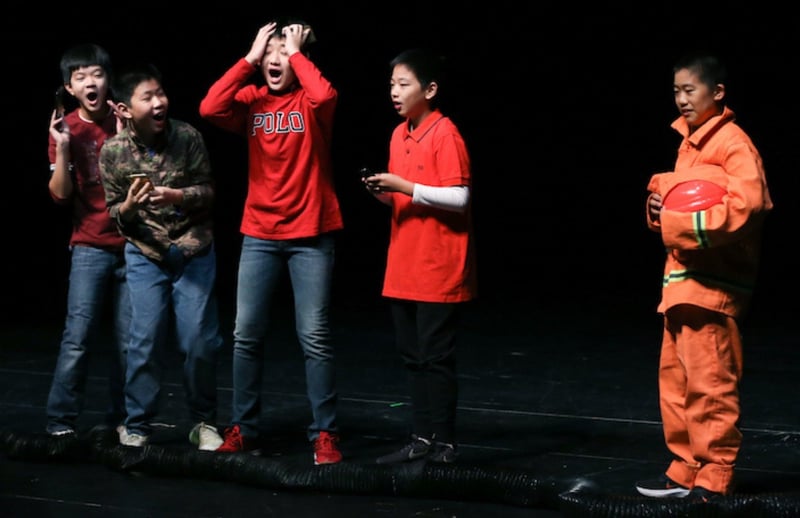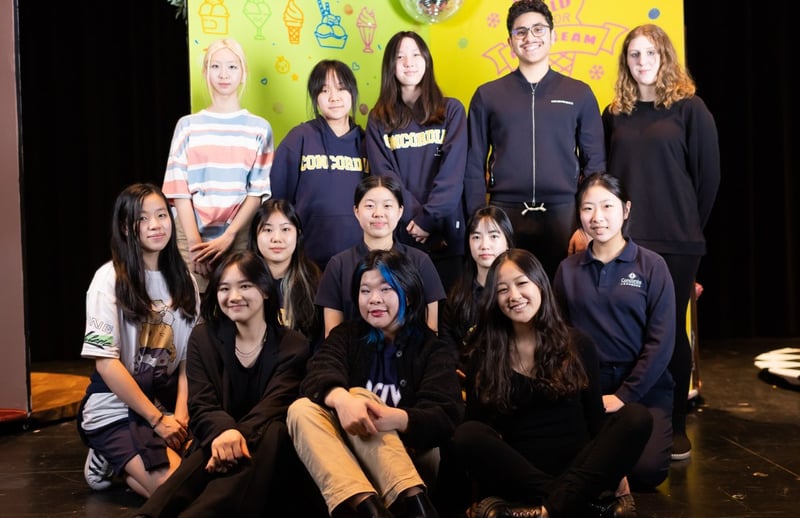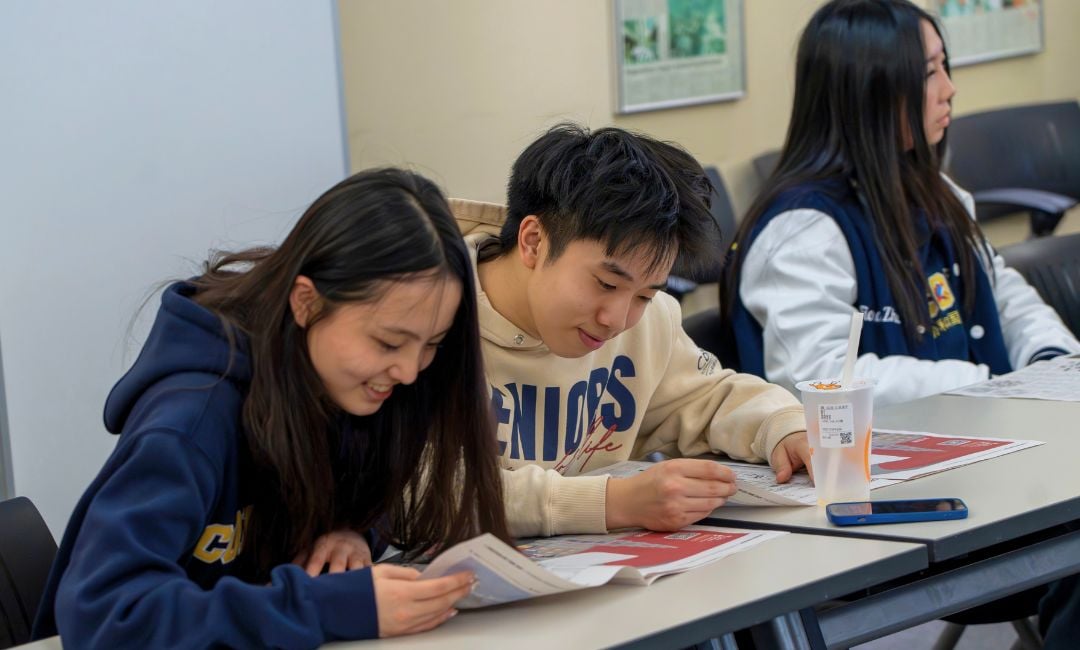You might wonder why theatre education is a mainstay at top international schools around the world. Well, theatre addresses the life-long learning skills and competences which benefit students' education and development in countless areas.
At Concordia Shanghai, theatre performance and production provide remarkable opportunities for leadership, collaboration, and creativity. Students learn to give and take direction, design imaginative sets and costumes, and inspire audiences through gesture, movement, and speech. Through these activities, students are also building poise and confidence in addition to an appreciation for culture and community.
Here are just a few of the benefits that theatre education has on students well into adulthood:
1. Expands understanding of humanity and the world
“Visual and performance art have the power to mirror humanity in an impactful way,” shares Ms. Corrinne Mann, MS/HS drama teacher at Concordia International School Shanghai. “Through the process of creation, performance and observation we have the opportunity as artists and audience to transform ourselves into more empathetic and accepting beings.”
By engaging students in lifelike learning contexts, the end goal of drama education is not just a beautiful performance, it is the growth in confidence of the individuals and understanding of this world and what it could be.
2. Develops communication skills and confidence
Drama is an excellent environment to develop effective communication skills. Acting teaches students to speak clearly and thoughtfully as well as when to project and speak with emphasis, helping them gain confidence and to be comfortable expressing their voice and message in front of others.
According to Ms. Mann, being able to personally assess a performance —“what went well”, “what could be improved” and “what was learned”— provides invaluable abilities in the realm of communication. “Discussing these items with a partner or group,” she adds, “helps build a foundation of transferrable confidence when encountering life conflicts or contentions.”
3. Generate creativity & critical thinking skills
Theatre education can also enable students to generate creativity and critical skills that are transferable to a variety of artistic, social, and work-related contexts. Whether they are in the cast or the crew, theatre students are learning how to think on your feet, to identify problems, evaluate a range of possible solutions, and figure out what to do.
Students also exercise their creative and critical thinking skills when learning to build and portray believable characters with real life problems. To better understand their character, students must consider physical and emotional traits, socio-economic background, societal norms in which they live, and personal objectives and motivations.
The skills that students learn by using creative processes to solve problems, are directly applicable to all manner of activities.
4. Develops empathy and understanding of self & others
Theatre education provides students an environment to safely explore challenging social scenarios. While playing roles and situations in drama, students gain new perspectives and develop empathy. As Ms. Mann puts it, “Through drama exercises and scene studies, we connect to others’ experiences and can potentially gain more empathetic understanding. As we raise our emotional and social intelligence, we become better humans.”
“A world without art, music, dance, innovation, and creativity is a world that is dehydrated. Theatre connects our young people to humanity and can be a source of happiness, expression, and release for their lifetime,” concludes Ms. Mann.
Hear what our theatre alumni say about their experiences at Concordia:
 My time in Concordia Theatre was invaluable in giving me experience in professional-level productions. It taught me how to work through my craft efficiently and with a sense of play and exploration. —Kai An Chee, Class of ’14, professional actor with Broadway touring company
My time in Concordia Theatre was invaluable in giving me experience in professional-level productions. It taught me how to work through my craft efficiently and with a sense of play and exploration. —Kai An Chee, Class of ’14, professional actor with Broadway touring company
 Theatre has always been a sort of second home to me. Theatre certainly has helped me grow and develop both as an actor and as a person in the many years I’ve taken part. —Liam Richmond, Class of ’21, sophomore at Allegheny College
Theatre has always been a sort of second home to me. Theatre certainly has helped me grow and develop both as an actor and as a person in the many years I’ve taken part. —Liam Richmond, Class of ’21, sophomore at Allegheny College
 I did theatre in middle school but the high school I attended before Concordia did not have a theatre program, so it was Concordia that reintroduced my love of performing. So much so I continue performing today both on stage and on film. —Ashley Ottesen, Class of ’11, professional actress living in the US
I did theatre in middle school but the high school I attended before Concordia did not have a theatre program, so it was Concordia that reintroduced my love of performing. So much so I continue performing today both on stage and on film. —Ashley Ottesen, Class of ’11, professional actress living in the US
 The impact performing had on my life left a much more lasting and deeper impact than almost any of my academic classes. Interestingly enough, I also use the skills and experience I gained from choir and theatre far more often than those I gained from my AP classes. —Don Zheng, Class of ’13, former software engineer at Microsoft
The impact performing had on my life left a much more lasting and deeper impact than almost any of my academic classes. Interestingly enough, I also use the skills and experience I gained from choir and theatre far more often than those I gained from my AP classes. —Don Zheng, Class of ’13, former software engineer at Microsoft








